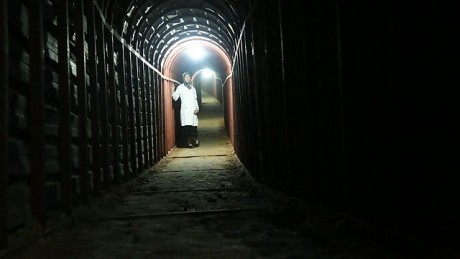


Ji.hlava IDFF 2019 Conclusions

The 23rd edition of the annual Ji.hlava IDFF closed its doors yesterday. The festival programme showcased 277 films in nine screening halls, hosting almost two hundred discussion sessions. The overall attendance again exceeded 40,000 visitors; with 5,330 accredited visitors and guests.
“I am very proud of our quality festival programme, unveiling especially the face of the up-and-coming filmmaking generation raising new topics and techniques in the context of filmmaking. It is enriching to see this concentration of creative diversity at a single place. Our aim was to have this year’s Ji.hlava IDFF reflect the world around, provoke us to become active and open up a space for a dialogue. And we are pleased to see it happen”, says Festival Director Marek Hovorka.
This year’s Ji.hlava IDFF hosted 5,330 accredited visitors. Out of 277 screened films, 91 were shown in their world, 17 in their international and 47 in their European premiere. This year, films competed in 11 sections. Films were shown in 8 screening halls in Jihlava and one in Třešť. The programme offered 130 discussions in the form of Q&A sessions, and almost 40 debates as part of the Inspiration Forum.
This year the platform took place during six festival days and focused on topics such as crisis of democracy, women in the third millennium or contemporary China. This year, the Inspiration Forum hosted four hundred guests from across the globe: including American climate expert Bill
McKibben, Afghani human-rights activist and presidential candidate Fawzia Koofi and future generations commissioner in Wales Sophie Howe.
Among the films that impressed the audience was The Cave (PHOTO) by Feras Fayyad about an underground hospital in Syrian city of Ghouta. The film also won the award for the best film in section Testimony on Politics. Among other successes was the investigative documentary The State Capture by Slovak
director Zuzana Piussi presenting a devastating portrayal of contemporary Slovakia thirty years after the fall of the Communist regime.
Section Fascinations: Eroticism also attracted much attention showcasing a retrospective of various forms of representation of physical desire, attraction and manifestations of physical love. The VR zone offering the VR-cinema and installation was a very popular feature.
Five hundred children enjoyed the Ji.hlava for Kids programme. The six-day platform for kids offered twenty-four blocks with workshops, nineteen film screenings and other off-screen events.
Ji.hlava’s this year’s topic was environmental protection. The climate crisis issue was the main focus of one full day of the Inspiration Forum as well as the Closing Ceremony with the presentation of the awards. During the Ceremony, representatives of Czech and foreign environmental initiatives (Instituto Terra, Greenpeace, Fridays for Future) made their appearance.
Chief curator of Tate Modern Gallery, Andrea Lissoni, and environmental ombudsman of the Ji.hlava festival, Luboš Slovák, talked about the
possibilities of changing the attitude of large institutions in this respect. “Unfortunately, in Czechia, the climate crisis is discussed more by its deniers. The situation is so serious that the topic should pervade all of our activities including film festival award ceremonies. This was also one of the reasons why we invited Extinction Rebellion who brought a dead tree on the stage as a symbol of climate crisis in Czechia and invited the government and Czech people to take action and prevent environmental collapse, ” says filmmaker Tereza Nvotová who was the host of the evening together with Jan Foukal.
The festival spot was made by Kazakhstani filmmaker Sergei Dvortsevoy and the festival trophy was designed by Chinese artist and activist Ai Weiwei.
Dozens of activities also took place as part of the Industry Programme, intended for 1,163 attending film professionals from both the Czech Republic and the whole world. The festival again hosted the educational workshop Emerging Producers, Festival Identity, Conference Fascinations focusing on
experimental film distribution. “This year’s edition has proven that Ji.hlava is becoming more and more popular as a destination for film professionals. Many of them appreciate not only the vibrant festival atmosphere, but also the quality Industry Programme. Ji.hlava is a meeting point of talents which
fosters unexpected collaborations and original documentary projects,” said Head of Industry, Jarmila Outratová.
The Jihlava IDFF was this year attended by 5,330 accredited participants, including 1,163 film professionals, 146 festival guests and 300 journalists. Out of the total of 277 films, 91 will be shown in their world, 47 in their international, and 17 in their European premiere. 3,700 films altogether have
been registered for the Ji.hlava IDFF 2019.
The 23rd Ji.hlava International Documentary Film Festival will take place on October 27–November 1, 2020.
http://www.ji-hlava.com/